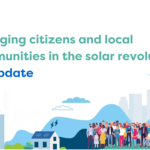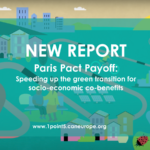
CAN Europe, Greenpeace, Friends of the Earth Europe, E3G and WWF jointly published a briefing on the Energy Efficiency Directive Progress Review.
The European Union (EU) imports 53% of the energy it needs, paying more than 1 billion € per day. Given the EU’s potential for energy savings and renewable energy, this means that an enormous cash flow is leaving the EU unnecessarily instead of being invested domestically to create jobs, increase competitiveness and reduce greenhouse gas emissions.
EU leaders highlighted in March that “moderating energy demand through enhanced energy efficiency” was the first step to reduce Europe’s dependency on gas imports. The European Commission’s Energy Security Strategy published in late May said this was “one of the most effective tools to reduce the EU’s external energy dependency and exposure to price hikes”.
The upcoming progress review of the Energy Efficiency Directive (EED) will define the next steps to close the gap towards the 2020 energy savings target and explore future directions for efficiency policy towards 2030. We urge the Commission to ensure that the 2020 target is met and to propose a binding EU target of 40% energy savings by 2030.
Download Briefing on the Energy Efficiency Directive Progress Review


